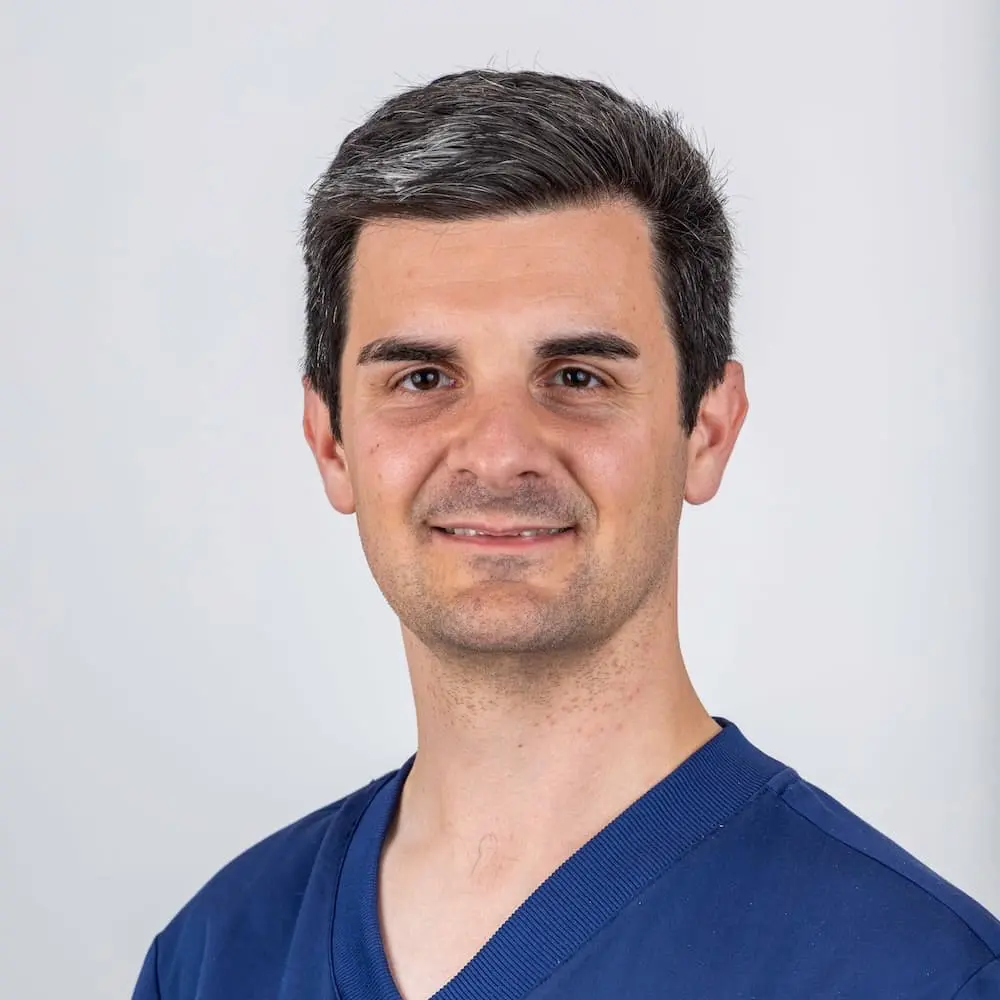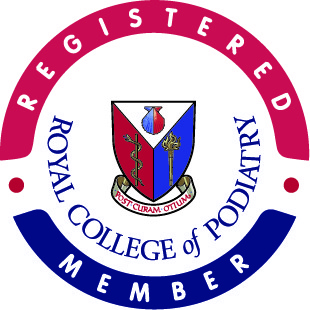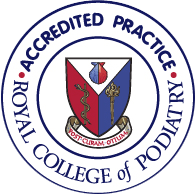ACHILLES TENDINOPATHY TREATMENT
Don’t let Achilles pain slow you down. Our cutting-edge treatments and personalised approach ensure you’ll be striding confidently again in no time.
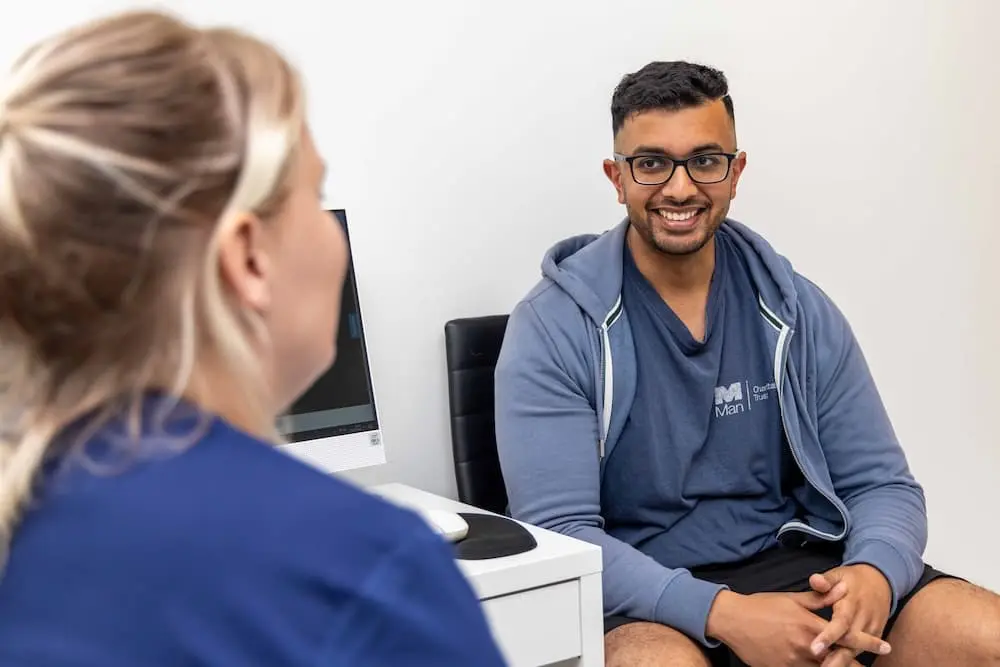
Services
WHAT IS ACHILLES TENDINOPATHY?
Achilles tendinopathy is a common condition that affects the largest tendon in your body – the Achilles tendon. This robust band of tissue connects your calf muscles to your heel bone, playing a crucial role in walking, running, and jumping. When this tendon becomes inflamed or degenerates, it can cause significant discomfort and impair your mobility.
The condition typically manifests as pain, swelling, and stiffness in the Achilles tendon. It can occur in two main areas: the lower portion where the tendon attaches to the heel bone (insertional tendinopathy) or in the middle part of the tendon, about 2-6 cm above the heel (mid-portion tendinopathy).
The symptoms often include pain and stiffness along the tendon, especially noticeable in the morning, swelling that worsens with activity, thickening of the tendon, and pain that increases during physical exertion.
Understanding Achilles tendinopathy is the first step towards effective treatment. The condition can significantly impact your daily activities and athletic performance, but with proper diagnosis and care, it can be effectively managed. At MyFootMedic, we specialise in diagnosing and treating this condition, offering personalised treatment plans to help you regain pain-free mobility and return to your active lifestyle.
WHAT CAUSES ACHILLES TENDINOPATHY?
Achilles tendinopathy stems from various factors, with overuse being a primary culprit. Repetitive stress from activities like running or jumping can lead to micro-tears and inflammation, especially when training intensity suddenly increases.
Poor biomechanics significantly contribute to this condition. Foot abnormalities and tight calf muscles can alter force distribution through the tendon, increasing injury risk. Similarly, inappropriate footwear, particularly those lacking adequate support or cushioning, can exacerbate tendon stress.
Age-related degeneration naturally increases susceptibility to Achilles tendinopathy as the tendon loses elasticity over time. Certain medical conditions, such as obesity, diabetes, and high blood pressure, can also impact tendon health.
At MyFootMedic, we perform comprehensive assessments to pinpoint the specific causes of your Achilles tendinopathy. This enables us to create a personalised treatment plan that addresses the root causes, ensuring effective and lasting relief.
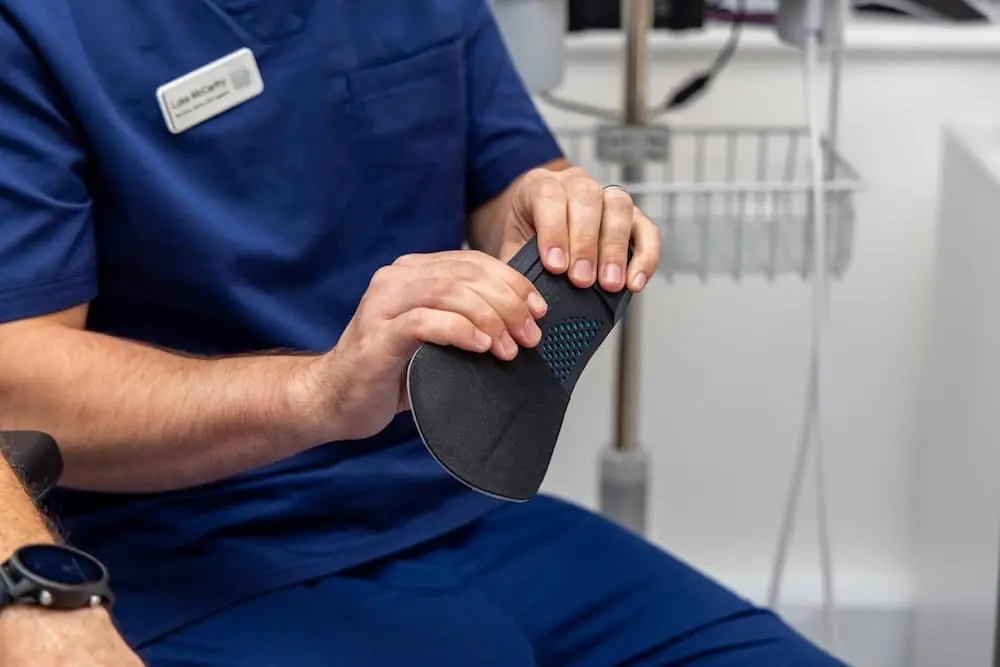
HOW CAN ACHILLES TENDINOPATHY BE TREATED?
Treatment for Achilles tendinopathy typically involves a multi-faceted approach tailored to each patient’s needs. Initial steps often include rest and activity modification to reduce stress on the tendon and allow healing to begin.
Exercises focusing on strengthening the calf muscles and improving tendon flexibility are crucial. Prescription insoles and orthotics are often prescribed to improve biomechanics and decrease strain to the Achilles tendon.
Advanced treatments like shockwave therapy or ultrasound guided steroid injections are commonly recommended for more severe cases.
At MyFootMedic, we offer comprehensive treatment plans for Achilles tendinopathy. Our approach combines evidence-based therapies with personalised care to ensure optimal recovery and prevent future recurrence.
LET’S ANSWER YOUR ACHILLES TENDINOPATHY QUESTIONS!
The healing time for Achilles tendinopathy varies depending on several factors, including the severity of the condition and adherence to treatment. Generally, mild cases often show good improvement within a few weeks with proper treatment and rest. However, more severe or chronic cases can take several months to fully heal. Most patients experience significant relief within 3 months of consistent treatment and rehabilitation. It’s important to note that rushing the recovery process can lead to re-injury, so patience and following your podiatrist’s advice is crucial. At MyFootMedic, we work closely with each patient to develop a personalised treatment plan, monitor progress, and adjust therapies as needed to ensure the most effective and efficient healing process possible.
Achilles tendinopathy can indeed resolve with proper treatment and care. While the recovery process may be gradual, many patients experience significant improvement and most achieve complete resolution of symptoms. The key lies in early intervention, appropriate treatment, and adherence to the treatment programme. With a combination of rest, insoles/orthotics, and targeted exercises, most cases of Achilles tendinopathy can be effectively managed. Shockwave therapy and steroid injections are often used for more severe cases. However, it’s important to note that without proper treatment, the condition may become chronic. At MyFootMedic, we provide comprehensive care to not only treat your current symptoms but also equip you with strategies to maintain long-term tendon health, significantly reducing the risk of future flare-ups.
Walking can be beneficial for Achilles tendinopathy, but it’s important to approach it carefully. In the early stages of the condition, your podiatrist may recommend limiting walking to allow initial healing. As symptoms improve, gentle walking can help maintain flexibility and promote blood flow to the tendon. However, the intensity and duration should be gradually increased under professional guidance. It’s crucial to wear appropriate, supportive footwear and to listen to your body, avoiding any activity that causes pain. At MyFootMedic, we assess each patient’s condition individually and provide personalised advice on safe walking practices. We can help determine the right balance between rest and activity, ensuring that walking contributes positively to your recovery rather than exacerbating the condition.
Achilles tendonitis and Achilles tendinopathy are often used interchangeably, but they represent different stages of tendon injury. Achilles tendonitis refers to the acute inflammation of the tendon, typically occurring after sudden increases in activity or overuse. It’s characterised by pain, swelling, and warmth in the affected area. Achilles tendinopathy, on the other hand, is a broader term that encompasses both inflammatory and degenerative changes in the tendon. It’s often considered a chronic condition resulting from repetitive stress over time. Tendinopathy involves structural changes in the tendon, including thickening and disorganisation of collagen fibers. While tendonitis is generally more responsive to rest and anti-inflammatory measures, tendinopathy often requires a more comprehensive, long-term approach to treatment. At MyFootMedic, we accurately diagnose whether you’re dealing with tendonitis or tendinopathy to provide the most effective, tailored treatment plan for your specific condition.
Managing activity levels is crucial when dealing with Achilles tendinopathy. While complete rest is not always necessary, it’s important to avoid activities that exacerbate pain or strain the tendon. In the acute phase, reducing weight-bearing activities can help alleviate symptoms and promote initial healing. However, prolonged immobilisation can lead to muscle weakness and tendon stiffness. As pain subsides, gradually reintroducing controlled movements and exercises under professional guidance is beneficial. This approach helps maintain strength and flexibility while preventing further damage. At MyFootMedic, we develop personalised activity modification plans that balance rest with appropriate exercises. We guide you on when to limit weight-bearing activities and how to safely return to your normal routine, ensuring optimal healing and preventing re-injury.
ACHILLES TENDINOPATHY TREATMENT IN BEDFORD WITH MYFOOTMEDIC
If you’re experiencing persistent heel pain, stiffness, or discomfort in your Achilles tendon area, it’s crucial to seek professional help. At MyFootMedic, our experienced podiatrists specialise in diagnosing and treating Achilles tendinopathy using the latest evidence-based techniques. We’re committed to helping you regain your mobility and return to your daily activities pain-free. Don’t let Achilles tendinopathy hold you back – book an appointment with us today to start your journey towards recovery and optimal foot health.

